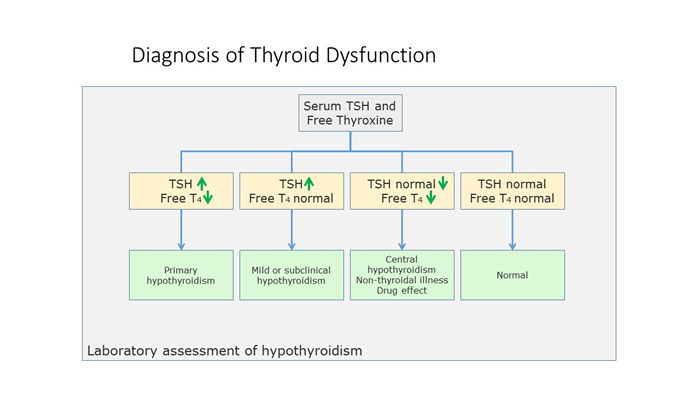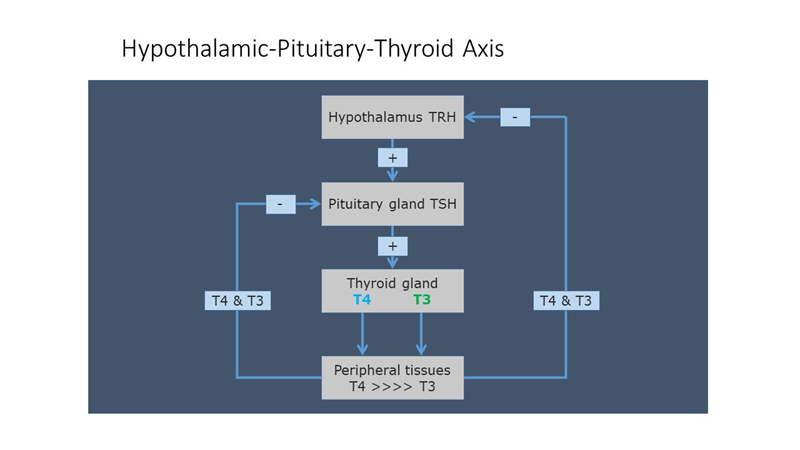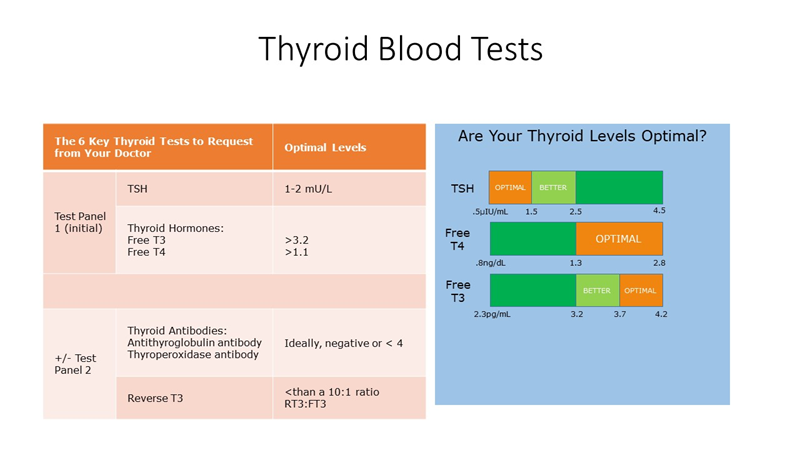TSH w/Reflex to FT4 Testing for Thyroid Function

Mastering TSH w/Reflex to FT4 Testing: Your Ultimate Guide
What does TSH with reflex to FT4 mean in a lab test?
TSH w/reflex to FT4 in lab tests means that if the levels of Thyroid Stimulating Hormone (TSH) are not normal, extra tests will be done to check the Free T4 (FT4) levels. This reflex testing gives a better view of thyroid function from just one blood sample.
What is a TSH blood test w/reflex to FT4?
A tsh blood test with a follow-up for FT4 checks how well the thyroid works in two steps. First, we measure TSH, which is the thyroid-stimulating hormone. This tells us about the thyroid activity. If the TSH result is not in the normal range, we then test for FT4, or free thyroxine. This helps us learn more about thyroid function.
Thyroid function is very important for our health. Changes in thyroid hormone levels, like protein levels, can affect how we feel. A couple of key tests to check thyroid function are TSH and FT4 tests. These tests give doctors useful information. This helps find and treat thyroid problems early. In this blog, we will look at TSH and FT4 tests. We will discuss why they matter, how they are done, what the test results mean, and who might need them. So, let's learn how these tests can support good thyroid function.

Understanding TSH and FT4
The thyroid gland is a small, butterfly-shaped organ in the neck. It makes thyroid hormone, which helps control many body functions. This includes metabolism, heart rate, and making proteins. The pituitary gland, found at the base of the brain, helps control how much thyroid hormone is made. It does this by releasing thyroid stimulating hormone (TSH). Doctors often check TSH levels to see how well the thyroid is working. High TSH levels may mean that the thyroid is underactive, which is called hypothyroidism. On the other hand, low TSH levels can suggest that the thyroid is overactive, known as hyperthyroidism.
Free thyroxine (FT4) is a thyroid hormone found in the blood. It is ready for the body's cells to use. Checking FT4 levels allows healthcare providers to find thyroid issues, such as hypothyroidism and hyperthyroidism.
Definition of TSH and Its Importance
The pituitary gland in the brain makes a hormone called TSH, or thyroid-stimulating hormone. This hormone helps the thyroid gland create two key hormones: thyroxine (T4) and triiodothyronine (T3). These hormones are important for controlling metabolism, growth, and development in the body. We can check TSH levels to find thyroid disorders, like hypothyroidism, which is when the thyroid is underactive, or hyperthyroidism, which is when it is overactive. High TSH levels mean the thyroid isn’t working enough, and low levels mean it is working too much. Keeping TSH levels right is important for your health and well-being.
Definition of FT4 and Its Importance
FT4, which stands for free thyroxine, is a blood test. It shows how much free thyroid hormone is in your blood. This hormone is important because it helps control your metabolism and energy levels. If FT4 levels are too high or too low, it may mean you have a thyroid problem, like hyperthyroidism or hypothyroidism. Checking FT4 levels is key for finding and treating thyroid issues. It also helps keep you healthy and feeling good.
Importance of TSH w/Reflex to FT4 Test
The TSH with a reflex to FT4 test is an important way to find thyroid disease early. Regularly checking thyroid hormone levels is vital for good thyroid function and health. This test helps to spot subclinical hypothyroidism and hyperthyroidism. These conditions may have few or no signs, but they can cause serious problems later if not treated. The TSH with reflex to FT4 test helps to diagnose and treat abnormal thyroid hormone levels quickly. This can stop complications related to thyroid dysfunction. Plus, this test is key for checking treatment in people who already have thyroid disorders. It shows how well the treatment is working and helps keep hormone levels in the right range.
The Procedure for TSH with Reflex to FT4 Test
The TSH with reflex to FT4 test is an easy blood test. It can be done in many labs and healthcare places. A healthcare provider will take a blood sample, usually from a vein in your arm. You do not need to fast for this test. However, it is important to tell your healthcare provider about any medications you are taking, especially thyroid medication and thyroid tests. Some of these may change the test results.
The blood sample is checked for TSH levels. If the TSH levels are not normal, more tests like FT4 are done. This helps to get a better understanding of thyroid function. The test results, symptoms, and clinical evaluation help doctors decide the best treatment plan.
Interpreting the TSH w/Reflex to FT4 Test Results
Understanding TSH and FT4 test results is very important for diagnosing thyroid issues. Normal TSH levels usually range from 0.4 to 4.0 mU/L. However, different labs may have slightly different normal ranges. If tsh results are not normal, it could mean the thyroid is underactive or overactive. This means more tests may be needed. Remember, even if your TSH is normal, too much thyroid hormone can still cause symptoms. This is why you should talk to your healthcare provider about any symptoms, even if your TSH results are in the normal range.
High levels of TSH usually mean hypothyroidism. This is when the thyroid gland does not make enough thyroid hormone. Symptoms of hypothyroidism can be weight gain, feeling very tired, dry skin, hair loss, being sensitive to cold, and feeling depressed.
Low TSH levels may show that someone has hyperthyroidism. In this condition, the thyroid gland makes too much thyroid hormone. People with hyperthyroidism can have several symptoms. These symptoms include weight loss, sweating more than usual, a fast heartbeat, feeling irritable, anxiety, shaking, having many bowel movements, not tolerating heat well, and feeling tired.
It is important to know that subclinical hypothyroidism and hyperthyroidism can happen. These conditions might have mild or no symptoms. They can be found by checking the TSH levels, which is why understanding the test result is important for early treatment.

TSH with Reflex to FT4 test and Specific Populations
Older people can have different thyroid hormone levels compared to younger adults. This makes the TSH with reflex to FT4 test very important for them. This test helps understand how well the thyroid is working in older adults. Some autoimmune diseases can also affect thyroid function. This shows how vital this test is for diagnosis. People with thyroid nodules, inflammation, or cancer can also gain useful information from the test results. Additionally, doctors might suggest this test for people who are very ill. This highlights how valuable it is for different groups of patients.
Why Should I Get a Thyroid Hormone TSH with Reflex to fT4 Test?
Understanding why thyroid hormone testing, like TSH testing, is important can help people manage their thyroid health and feel better overall. The thyroid gland is essential because it controls many body functions. When thyroid hormone levels are off, as shown by TSH testing, it can lead to symptoms that impact weight, energy levels, mood, heart rate, and more.
By getting a TSH reflex-free T4 test, people can learn important details about their thyroid function. This helps doctors diagnose thyroid issues correctly. The test can find both underactive thyroid (hypothyroidism) and overactive thyroid (hyperthyroidism) conditions. It can even catch these problems in early stages when there might be few or no symptoms.
Regular testing of thyroid hormones is very important. This includes the TSH test that checks FT4 levels. It is especially crucial for people with thyroid problems, older adults, those with autoimmune diseases, serious illnesses, or anyone with thyroid nodules, inflammation, or cancer. When healthcare providers keep an eye on thyroid function, they can create personalized plans. This helps to optimize thyroid hormone levels, ease symptoms, and improve overall quality of life.
If you have any of these symptoms, it's a good idea to talk to your doctor. You might need to get the TSH with reflex to FT4 test.
Symptoms of Hypothyroidism
Hypothyroidism happens when the thyroid gland does not make enough thyroid hormone. This can lead to many symptoms. These include weight gain, tiredness, dry skin, hair loss, being sensitive to cold, feeling down, muscle weakness, constipation, and problems with memory. People with hypothyroidism might also have heavy menstrual periods and a slow heart rate. Subclinical hypothyroidism can show mild symptoms or none at all. This highlights the need for tests to check for thyroid dysfunction accurately.
When Your Thyroid Slows Down: Hypothyroidism
Hypothyroidism happens when your thyroid works less than it should. Some signs you might feel are:
- Feeling very tired all the time
- Being sensitive to cold weather
- Gaining weight
- Losing hair
- Puffiness around the eyes
- A slower heart rate
- Having trouble breathing
- Experiencing constipation
- Changes in menstrual cycles
- In rare cases, fainting
Symptoms of Hyperthyroidism
Hyperthyroidism is a condition where the thyroid gland makes too much thyroid hormone. This can cause several symptoms. People may lose weight, sweat a lot, feel their heart racing, feel irritable, or feel anxious. They might also have shaking hands, go to the bathroom often, feel hot even when it's not, and feel very tired. Some women may notice irregular periods or trouble sleeping. They might also feel weak in their muscles. It is important to spot the symptoms of hyperthyroidism early. This helps get treatment quickly, reduces symptoms, and keeps further problems from happening.
Understanding Hyperthyroidism: When Your Thyroid is Overactive
Hyperthyroidism happens when your thyroid works too hard. This can show in different ways, such as:
- Feelings of anxiety and changing moods
- Being easily irritated
- Weak muscles, especially in the arms and legs
- Trouble sleeping
- Shaking hands
- Sweating a lot
- Not being able to handle heat well
- An irregular heartbeat
- Always feeling tired
- Unexplained weight loss
- Going to the bathroom more often
- Irritated or bulging eyes (often linked to Graves' disease)
- Changes in menstrual cycles
- Changes in men’s health, like breast growth and erectile dysfunction
- Thinning hair
- Higher blood sugar levels
- Shortness of breath
- Needing to urinate more often
Symptoms of Hashimoto's
An autoimmune disorder like Hashimoto's affects the thyroid gland. This can lead to several symptoms that impact daily life. Common signs include tiredness, unexplained weight gain, hair loss, and feelings of depression.
To diagnose and keep track of Hashimoto's, healthcare providers use a TSH test with reflex to FT4. This test measures thyroid-stimulating hormone, free thyroxine in the blood, and thyroid antibodies. High TSH and anti-thyroid antibodies can point to Hashimoto's disease.
Treatment usually includes medication to control thyroid hormone levels and help with specific symptoms. It is important for people with Hashimoto's to communicate regularly with their healthcare provider. This helps them manage the condition effectively.
Symptoms of Grave’s disease
Symptoms of Grave's disease include weight loss, feeling irritable, and being extra sensitive to heat. People with this condition may also have hand tremors, feel anxious, and experience a fast heart rate. Other common signs are bulging eyes, tiredness, and weak muscles. You might notice thinner skin, brittle hair, and missed or irregular periods. It is important to recognize these symptoms early. Doing so can help manage Grave's disease more effectively.
How to Prepare for a TSH Blood Test?
Preparing for a TSH blood test is quite easy, and you don't need to fast. However, you should tell your healthcare provider about any medications you are taking, including thyroid medication. These can change the test results. When you go for the test, wear a shirt with loose sleeves. This will help make blood sample collection easy. The normal range for TSH levels is usually between 0.4 to 4.0 mU/L. Knowing this range helps you understand your test results better. Remember, different labs might have slightly different normal ranges for TSH levels. So, it's a good idea to check with your healthcare provider to read your results correctly.
How is TSH with reflex free t4 Test Useful?
The TSH with reflex free T4 test is helpful for checking how well the thyroid gland is working. It shows if the thyroid is making enough of the hormone thyroxine (T4). This hormone is key for managing metabolism. The test can find conditions like hypothyroidism and hyperthyroidism. It also helps to track how well treatment is working. This makes the test important for looking at thyroid function and health.
How are TSH (thyroid-stimulating hormone) and T4 (thyroxine) levels related?
TSH, or thyroid stimulating hormone, helps make thyroxine, known as T4, in the pituitary gland. T4 levels are very important because they control metabolism, heart rate, and protein production, along with other body functions. The levels of T3 and T4 affect how much TSH is made. If T3/T4 levels are high, TSH goes down. If T3/T4 levels are low, TSH goes up. Watching TSH levels is a good way to check for thyroid dysfunction, especially if there is no concern about pituitary disease. A normal TSH shows that most primary thyroid diseases are not present. Low TSH levels mean the thyroid is overactive, while high TSH levels mean the thyroid is underactive.
Low TSH and normal T4
Low levels of TSH and normal levels of T4 show that the thyroid is overactive. This is called subclinical hyperthyroidism. In this condition, TSH is low and T4 is normal, but there are no symptoms or they haven't appeared yet. Studies suggest that up to 16% of people may have subclinical hyperthyroidism. Common symptoms of hyperthyroidism can be weight loss, a fast heart rate, and anxiety. To find out the reason for low TSH and normal T4, more tests may be needed. These tests can look for issues like Graves' disease or thyroid nodules. It is important to talk to healthcare providers to check thyroid function and manage it correctly.
Low TSH and high T4
Low TSH levels and high T4 levels show that the thyroid is overactive. This means a person may have hyperthyroidism. Some symptoms of hyperthyroidism are weight loss, heat intolerance, and a fast heart rate. It is important to talk to healthcare providers for more evaluation and treatment. The low TSH and high T4 can suggest issues like Graves’ disease, thyroid nodules, or too much medication. Other tests may be needed to confirm the diagnosis.
High TSH normal T4
High levels of TSH and normal levels of T4 show that the thyroid is underactive. This condition is called hypothyroidism. You may feel symptoms of hypothyroidism, like weight gain, tiredness, and feeling cold. To fix hormone levels, you might need thyroid hormone replacement therapy. Your healthcare provider will help make a treatment plan based on your test results and how you feel. It is very important to check your thyroid function regularly. This ensures that your thyroid hormone levels stay good and that you feel well overall. If your blood test shows these results, your healthcare provider will keep an eye on your levels to see if they change and lead to clinical hypothyroidism.
Low TSH and low T4
Low levels of TSH and T4 can show serious health issues or central hypothyroidism. This condition happens due to problems with the pituitary gland. It is important to get medical help right away for more tests and treatment. Addressing central hypothyroidism is key because it can greatly impact health. Talking to healthcare providers is very important to find out why TSH and T4 levels are low. Often, hormone replacement therapy is needed to get thyroid hormone levels back to normal.
High TSH and low T4
High levels of TSH and low levels of T4 show primary hypothyroidism. This can happen due to conditions like thyroid nodules or inflammation in the thyroid gland. Some symptoms of hypothyroidism are fatigue, weight gain, and cold intolerance. Primary hypothyroidism happens when the thyroid gland does not make enough thyroid hormone. To help with this, thyroid hormone replacement therapy is often needed. Healthcare providers check thyroid function regularly to make sure the treatment is working well.
High TSH and high T4
High levels of TSH and T4 show that the thyroid is working too much and there is too much thyroid hormone. This can happen because of things like too much thyroid medication or resistance to thyroid hormone. A lot of TSH may also mean that your thyroid is not making enough thyroid hormone. This is known as hypothyroidism or an underactive thyroid. Many health issues can lead to hypothyroidism, like Hashimoto’s disease. Around 5% of adults in the United States have this condition. You need to see a doctor quickly for more tests and treatment. Healthcare providers will figure out why the thyroid hormone levels are high. They may need to change the thyroid medication or treatment plans to manage thyroid function the right way.
Frequently Asked Questions
Where can I buy an affordable TSH with reflex to FT4 test?
DiscountedLabs.com provides the cheapest thyroid tests available online. You can order them without needing to visit a doctor. A lab near you can perform the tests.
What are some conditions that can affect the results of a TSH with reflex to FT4?
Several things can change the results of a TSH blood test that checks FT4. These include using medications, being pregnant, going through menopause, having issues with the pituitary gland, having thyroid problems, fasting, or dealing with an illness. Medications like steroids or thyroid hormone replacement can change TSH levels. This can give unusual test results. Hormones from pregnancy or menopause can also change TSH levels. It is important to think about these factors when looking at test results. If someone has medical conditions like pituitary gland disorders or thyroid disease, this can also lead to unusual TSH results. Further checks are needed to find the main problem. Also, fasting or being sick can affect TSH levels. It's vital to think about each person's situation when looking at these test results.
How often should someone get a TSH w/reflex to FT4 done and why?
The number of TSH blood tests that lead to FT4 testing depends on a person's health history, symptoms, thyroid issues, and treatment plans. People with thyroid disorders might need to have these tests more often, often every 6 to 12 months. This helps check their thyroid function and how well their medications are working. Regular tests are important. They help maintain good thyroid hormone levels and overall health. Talking to healthcare providers is key in creating a testing schedule that fits each person's needs.
Is fasting required before taking this test, or can it be taken at any time of day?
Fasting is not usually needed before taking the TSH with reflex to FT4 test. This makes it easy for people to schedule the test when they want. You can take the test at any time of day. However, healthcare providers often prefer that it is done in the morning. This is to check for normal daily hormone changes. It is important to tell healthcare providers about any medicines, supplements, or health issues that might affect the test results. This helps to ensure that the test results are read correctly. Always follow the healthcare provider's advice on any food restrictions or other test preparations for the best results.
What is a good TSH level for your age?
TSH levels can change due to a person's age, gender, overall health, and the reference ranges of different labs. A normal TSH value is usually between 0.4 and 4.0 mIU/L. Older adults may have slightly higher TSH levels. The reference ranges may also be adjusted for normal aging. Some experts believe the normal upper limit for TSH should be lower, around 2.5 mU/L. They suggest this because most adults without thyroid disease usually have TSH values between 0.45 and 4.12 mU/L. This is especially true for younger females. It is important to talk to healthcare providers to find out the right TSH levels based on individual age, health, and symptoms.
What does it mean when TSH is low and FT4 is high?
When TSH levels are low and FT4 levels are high, it means the thyroid is overactive. This condition is known as hyperthyroidism. It can happen due to several reasons, like Graves’ disease, thyroid nodules, or using too much medication. People with hyperthyroidism may experience symptoms like weight loss, heat intolerance, heart pounding, anxiety, and irritability. It’s important to get medical help right away. A doctor can check the symptoms, confirm the diagnosis, and create a treatment plan. This plan will help control thyroid hormone levels and manage hyperthyroidism well.
What are early warning signs of thyroid problems?
Thyroid problems can show up in different ways. Some symptoms are mild and easy to miss. Early signs of thyroid issues include feeling tired, gaining or losing weight, mood changes, or low energy. Other signs are hair loss, dry skin, muscle weakness, and changes in menstrual periods. If you notice any of these symptoms, it's important to see a doctor. Getting medical help is key for an accurate diagnosis and proper treatment for thyroid dysfunction.
Conclusion
In conclusion, it is important to understand how TSH and FT4 levels relate to thyroid function. The TSH with reflex to FT4 test is a good method to diagnose and keep track of thyroid disorders. By looking at the results, healthcare providers can find specific groups that are at risk and offer proper treatment. Remember to do the right things to prepare for the test and talk to your healthcare provider for help. Regular monitoring is key for good thyroid health. If you feel symptoms like tiredness, weight changes, or mood swings, it is important to get tested and ask for medical help. Take control of your thyroid health and focus on your well-being.
BUY YOUR OWN THYROID TESTS ON DISCOUNTED LABS
References
[1] Laboratory Values and Interpretation
[2] Thyroid Function Tests (TSH, FT4, FT3)
[3] Thyroid Hormone Measurement in Primary Care
[4] Thyroid Function Tests Overview
[5] TSH Reflex: When Is It Ordered?
[6] Cleveland HeartLab: TSH with Reflex to FT4
[7] Quest Diagnostics: TSH with Reflex to Free T4






